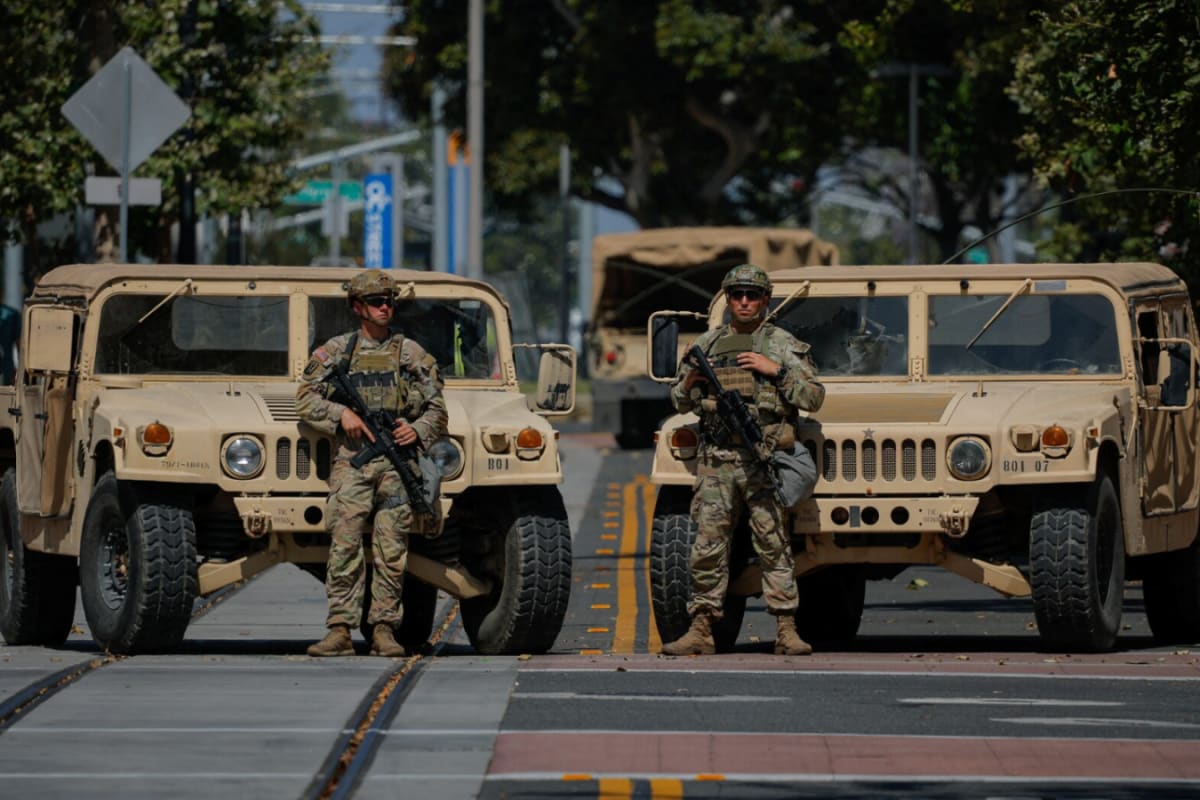World
Texas National Guard Troops Deploy to Chicago Amid Immigration Tensions

The arrival of Texas National Guard troops in Chicago has intensified the ongoing immigration enforcement actions led by the administration of President Donald Trump. This deployment coincides with legal disputes and executive measures implemented by local authorities aimed at limiting the powers of federal immigration agents.
Legal Challenges and Local Response
On March 5, 2024, Texas National Guard troops made their way to Chicago following a decision by US District Judge April Perry, who declined to block the troop entry. The judge’s ruling came in response to a lawsuit filed by Illinois Attorney General Kwame Raoul, who sought to prevent the Trump administration from utilizing the National Guard or deploying additional troops from other states.
The lawsuit aims to establish a permanent injunction against the federal government’s actions, arguing that they infringe on state rights and local governance. Raoul expressed concern over the potential escalation of immigration enforcement and its impact on local communities.
In a proactive response, Chicago Mayor Brandon Johnson signed an executive order on March 4, 2024, which prohibits Immigration and Customs Enforcement (ICE) agents from conducting operations on city-owned properties. This marks the third such executive action taken by the city since the announcement of federal troop deployment. Johnson stated, “City property and unwilling private businesses will no longer serve as staging grounds for these raids.”
Community Reactions and Federal Tensions
The heightened presence of immigration enforcement has led to increased tensions in Chicago and its suburbs. Reports indicate that the suburb of Broadview has experienced violent confrontations, with law enforcement utilizing tear gas and pepper spray against protestors. These altercations have raised significant concerns regarding the safety and civil rights of residents.
In response to the city’s actions, the White House accused Mayor Johnson of “aiding and abetting criminal illegal immigrant killers, rapists, traffickers, and gang bangers.” This statement reflects the ongoing national debate surrounding immigration policies and local governance. The conflict highlights the stark divide between federal and local authorities regarding immigration enforcement and community safety.
As the situation evolves, Chicago’s local government continues to navigate the challenges posed by federal immigration actions while addressing community concerns. With legal battles anticipated and community sentiments divided, the implications of this federal-state conflict remain significant for residents and policymakers alike.
-

 World5 months ago
World5 months agoSBI Announces QIP Floor Price at ₹811.05 Per Share
-

 Lifestyle5 months ago
Lifestyle5 months agoCept Unveils ₹3.1 Crore Urban Mobility Plan for Sustainable Growth
-

 Science4 months ago
Science4 months agoNew Blood Group Discovered in South Indian Woman at Rotary Centre
-

 World5 months ago
World5 months agoTorrential Rains Cause Flash Flooding in New York and New Jersey
-

 Top Stories5 months ago
Top Stories5 months agoKonkani Cultural Organisation to Host Pearl Jubilee in Abu Dhabi
-

 Sports4 months ago
Sports4 months agoBroad Advocates for Bowling Change Ahead of Final Test Against India
-

 Science5 months ago
Science5 months agoNothing Headphone 1 Review: A Bold Contender in Audio Design
-

 Top Stories5 months ago
Top Stories5 months agoAir India Crash Investigation Highlights Boeing Fuel Switch Concerns
-

 Business5 months ago
Business5 months agoIndian Stock Market Rebounds: Sensex and Nifty Rise After Four-Day Decline
-

 Sports4 months ago
Sports4 months agoCristian Totti Retires at 19: Pressure of Fame Takes Toll
-

 Politics5 months ago
Politics5 months agoAbandoned Doberman Finds New Home After Journey to Prague
-

 Top Stories5 months ago
Top Stories5 months agoPatna Bank Manager Abhishek Varun Found Dead in Well









